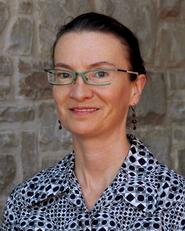
Although African-American bassist/singer/songwriter MeShell Ndegéocello expresses an ambivalent relationship to feminism, much of her music enacts vigorous feminist critiques of capitalism, Black identity politics, racism, and homophobia.
Mockus's essay analyzes six of her songs from Cookie: The Anthropological Mixtape (2002) and Peace Beyond Passion (1996) as sonic articulations of Black feminist protest, spiritual transformation, and sexual politics. Situated within a Black feminist framework, the analyses draw from theoretical work by Angela Davis on music and social consciousness and bell hooks on the commodification of blackness.
Unmaking Race, Remaking Soul focuses on the idea of aesthetic agency through which one develops different modes of expression and creative practices that facilitate personal and social transformation. Aesthetic agency is liberating in a broad sense—it not only frees our creative capacities but also expands our capacity for joy and our abilities to know, to judge, and to act.
This collection explores innovative approaches to analyzing cultural productions through which women of color have challenged and undermined social and political forces that work to oppress them. The analyses therein emphasize art-making practices that emerge out of and reflect concrete lived experience.
Posted November 5, 2007
